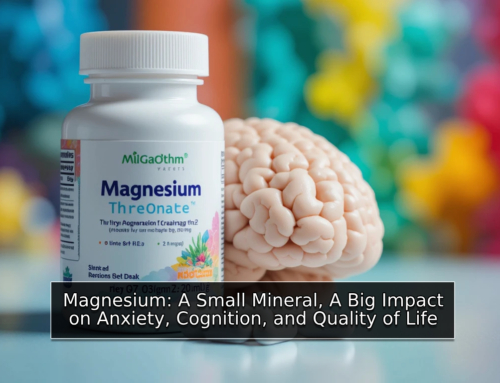Does People-Pleasing and Inauthenticity Make Us Sick?
The connection between behavioral patterns like people-pleasing and inauthenticity and health status is a subject of great importance in psychotherapy and mental health. In this post, we will examine this complex connection, referring to research and clinical insights, and offer therapeutic tools for effective coping.
We all want to be loved and accepted, and it is natural to want to please others. However, when pleasing becomes a constant and ongoing pattern, it can take a heavy toll. Chronic pleasing means consistently placing the needs of others before our own, while suppressing personal emotions and needs. Inauthenticity, on the other hand, is expressed in not being true to ourselves, our values, and our feelings.
As Dr. Gabor Maté writes in his book "When the Body Says No," emotional suppression and difficulty setting boundaries can contribute to the development of various diseases. He emphasizes the connection between childhood experiences, behavioral patterns, and damage to the immune system. "The body remembers," he claims, and unprocessed experiences can manifest as physical illnesses.
The Connection to Spontaneous Healing and Authenticity – Insights from the Work of Dr. Rediger and Dr. Turner
The groundbreaking work of Dr. Jeff Rediger and Dr. Kelly Turner adds an important dimension to understanding the connection between mind and body, especially regarding healing processes. In his book "Cured," Dr. Rediger researches fascinating cases of spontaneous healing from severe illnesses and discovers that psychological and emotional changes play a central role in the healing process. He points out that people who experienced spontaneous healing often underwent a profound change in their worldview, which included a significant strengthening of their sense of authenticity and a deeper connection to their true selves.
Dr. Kelly Turner's work with cancer patients who recovered exceptionally, "Radical Remission," reinforces this insight. Turner found that one of the common factors for those who recovered was their willingness to be true to themselves, to express their feelings freely, and to live according to their personal values. They learned to set clear boundaries, to say "no" when necessary, and to prioritize their personal well-being. This change often included stopping patterns of people-pleasing and connecting to inner authenticity.
How Does This Happen in Practice? The Physical and Mental Effects
- Chronic Stress: Constant pleasing creates ongoing stress, which causes the release of stress hormones like cortisol, which over time can damage the immune system, raise blood pressure, and cause digestive problems, sleep disturbances, and more.
- Emotional Suppression: Suppressing emotions, especially negative ones like anger, sadness, and frustration, can lead to mental health problems such as anxiety, depression, panic attacks, and more.
- Burnout: Constant effort to please others can lead to chronic physical and mental exhaustion, a sense of alienation, cynicism, decreased functioning, and damage to quality of life.
- Damage to the Immune System: Studies show that chronic stress and emotional suppression weaken the immune system, making us more vulnerable to various diseases, including infections and autoimmune diseases.
- The Connection to Cancer: Preliminary studies examine the connection between chronic stress, emotional suppression, and an increased risk of cancer. It is important to emphasize that this is a developing research area and there are no definitive conclusions yet, but the insights from the work of Rediger and Turner reinforce the understanding that psychological factors play an important role.
CBT, ACT, and Process-Based Therapy (PBT): Tools for Change and Growth
CBT therapy helps in identifying unhelpful thought and behavior patterns, such as the compulsive need to please others, and developing more effective and healthy coping strategies. ACT therapy, on the other hand, focuses on accepting difficult feelings and thoughts and committing to action that aligns with our personal values, while strengthening the sense of authenticity. Process-Based Therapy (PBT) combines the two approaches and focuses on basic psychological processes, such as psychological flexibility, which contribute to mental well-being and a fuller life.
Examples from the Clinic:
- A patient who felt guilty every time she said "no" to others learned with CBT to identify the automatic thoughts that caused her this feeling and develop alternative responses, while strengthening her sense of self-worth.
- A patient who suppressed his anger for years learned with ACT to accept anger as a natural part of the human experience and find healthy and authentic ways to express it, without harming himself or others.
The Impact of Research on Our Insights – Connecting Mind and Body
The research in this area, and especially the work of Rediger and Turner, allows us to understand the complex and deep connection between mind and body. They emphasize the importance of emotional treatment and developing self-awareness as an integral part of maintaining our overall health. They reinforce the understanding that authenticity and connection to ourselves are not only important for quality of life but may also be a significant factor in physical and mental healing processes.
Summary
People-pleasing and inauthenticity can adversely affect our mental and physical health. CBT and ACT therapy, in a process-based approach, can assist in identifying these patterns, developing psychological flexibility, and living more authentic and fulfilling lives. It is important to remember that change takes time and effort, but it is possible and very valuable.
Important Note: The information presented in this post is intended for informational purposes only and does not constitute a substitute for professional medical or psychological advice. The information presented here is based on scientific research and clinical experience but does not constitute a recommendation for a specific treatment. Each person is unique, and the most appropriate treatment will be determined by a professional.
Sources:
- Maté, G. (2003). When the body says no: The cost of hidden stress. John Wiley & Sons Canada.
- Rediger, J. (2020). Cured: The life-changing science of spontaneous healing. Flatiron Books.
- Turner, K. A. (2014). Radical Remission: Surviving Cancer Against All Odds. HarperOne.
- Immunology of Stress: A Review Article
- Stress and Cancer
Contact now
Ready to take the first step towards positive change? Contact me now for more information and to schedule an appointment. Whether you prefer in-person sessions in Tel Aviv or virtual meetings via Zoom, my integrated approach of Cognitive Behavioral Therapy (CBT) and Acceptance and Commitment Therapy (ACT) can help you break free from struggles and find greater fulfillment in life. I'll be sure to get back to you as soon as possible. Let's embark on this transformative journey together!
Call Whatsapp 052-2325511
Or fill out the following form.
Can ACT and CBT assist you or your loved ones?
Welcome to my therapy practice, where I offer a powerful combination of Cognitive Behavioral Therapy (CBT) and Acceptance and Commitment Therapy (ACT) techniques. CBT is a goal-oriented, short-term approach that's highly effective for anxiety, depression, low self-confidence, and more. ACT complements CBT, helping you navigate life's challenges and find fulfillment and authentic, happier life.
If you're struggling with anxiety, depression, low self-image, or facing setbacks, CBT combined with ACT may be the key to transforming your life. Break free from the struggle and take a step towards a happier, more fulfilling life.
Contact me today to schedule an appointment and embark on your journey of positive change. You don't have to face it alone; I'm here to support you every step of the way. Let's work together to create the life you deserve!





